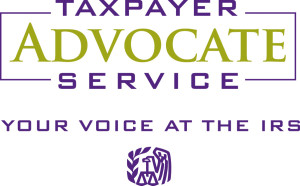 The National Taxpayer Advocate raised a few eyebrows in Washington, DC recently when it suggested that the Internal Revenue Service make “apology payments.”
The National Taxpayer Advocate raised a few eyebrows in Washington, DC recently when it suggested that the Internal Revenue Service make “apology payments.”
Nina Olson is the National Taxpayer Advocate and, as such she heads the Office of the Taxpayer Advocate, a government office dedicated to helping taxpayers solve their problems with the IRS. Twice a year, she is required to submit semi-annual reports to Congress. In her most recent report, she recommends that the IRS specifically allow her office to make “apology” payments of up to $1,000 to taxpayers where the action or inaction of the IRS causes excessive expense or undue burden, and the taxpayer experiences a “significant hardship.”
Although the proposal has been poorly received in Washington, apology payments that serve as a remedy for the violation of taxpayer rights have already been adopted in countries like Australia and the United Kingdom.
If Congress were to allow this to happen (which is unlikely), payments of up to $1,000 would be provided to the offended taxpayer and the aggregate payments under the proposal would be capped at $1 million per year.
According to the report, the payments are to serve as a symbolic gesture and would potentially allow the public to perceive the United States tax system as just and fair.
In the report, Olson also highlighted the absence of adequate checks and balances at the IRS. She pointed out that Congress no longer holds joint annual oversight hearings to review IRS challenges and recommended that they be reinstated.
In addition, the report encouraged an establishment for an appeals process for organizations whose exempt status has been automatically revoked in error. This recommendation was made as a response to the IRS action in June of 2011 when it notified approximately 275,000 exempt organizations (most of them being public charities) that their tax-exempt status had been automatically revoked. These organizations had no way to appeal for administrative review and were forced to resubmit cumbersome applications that ended up costing the organization and the government unnecessary time and money.
Washington, DC has a tendency to move slowly but Olson is pushing it towards policies that enable taxpayer rights. Overtime, it is my hope that the public should expect to see greater transparency and accountability reforms at the IRS.
As you may recall from my September 15, 2011 blog, New Jersey created its own Taxpayer Advocate office in 2011. Sheri Silverstein, a tax attorney whom worked in the Division of Taxation for 24 years was named its advocate. The New Jersey office is dedicated to resolving taxpayers with their NJ tax problems. To date, there has been no mention of a similar proposal.
Individuals and businesses are always welcome to contact my office with questions regarding the latest developments in the U.S. tax system.

